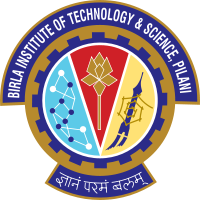Election Guidelines
SECTION 1 – General Instructions
- A manifesto must be present at all times while campaigning.
- Candidates may be campaigned for only by their registered campaigners.
- Door to door campaigning should take place within hostel rooms only. No campaigning is allowed in common rooms or corridors.
- At any given time during campaigning, the group size must not exceed 8 members, including the campaigner(s) [This includes the candidate in question [if present]], in the Meera Bhawan visitors room.
- Campaigning can only be done during the given time slots:
- Monday – Friday: 1700 hrs to 2300 hrs(until 22.00hrs for first years)
- Saturday: 1500 hrs to 2300 hrs(until 22.00hrs for first years)
- Sunday or holidays: 1000 hrs to 2300 hrs(until 22.00hrs for first years)
- Only SU/SSMS supported/institute backed activities undertaken by the candidate in the past may be spoken about by the campaigners.
- The campaigner(s) may not refer to any of the other candidates or their manifesto points by name or any other means. If negative references to the same are made, the case shall be treated as one of either anti-campaigning or character assassination, as seen fit, and shall be dealt with as detailed in SEC. 10.
- Alliances may not be formed between candidates. Any alliances so formed will be looked at as flagrant violations.
The campaigner(s) may not mention the backing of the candidate by previous President(s) and General Secretary(ies) if any.
SECTION 2 – Communicating with the Electorate
- No electronic media may be used while campaigning.
- Pamphlets and brochures may not be printed and distributed.
- No monetary or material incentives may be offered.
- No campaigning of any form is permitted outside the campus.
- No campaigning of any form is permitted inside the institute.
- Sloganeering and processions of any form are strictly disallowed.
- No badges of any sort are permitted.
- No P.A. systems, music or entertainment or refreshment stalls may be employed during the campaign.
- Animals may not be used for campaigning.
- Banners of any kind are not permitted to be used.
- Defacement of posters, manifestos, etc. is not permitted.
- All surveys conducted by candidates during the campaign period and/or surveys used by candidates for the purpose of campaigning must first be deemed legitimate by the Election Commission and the onus of ensuring the legitimacy of the conduct of such surveys lies with the respective candidate and that candidate only.
- Lettering of walls, defacement of Bhawans, mess or institute buildings, painting on roads, etc. is not permitted.
- Forcible campaigning of any sort is not permitted. The campaigners are requested to refrain from aggressively campaigning to those who do not wish to be campaigned to.
- Female Candidates contesting for the position of the General Secretary or the President and their female campaigners are permitted access to the Boy’s Hostel common rooms with prior permission from the Election Commission and upon issue of necessary I.D. cards.
SECTION 3 – Financial
- The candidate may not spend any money for the purpose of his campaign.
SECTION 4 – Nomination Process
- Once the call for nominations is displayed, prospective candidates can put forward their names following the procedure mentioned. Nomination forms can be found here.
- The nomination process entails a prospective candidate being proposed and seconded by two students of his electorate, and a deposit of Rs. 300/Rs. 500 for a Hostel Representative and President/General Secretary nomination respectively.
- After the acceptance of nominations, candidates are expected to submit a manifesto as well as a statement of purpose (SOP), on the date of submission for the manifesto as mentioned in the schedule.
- A soft copy of the manifesto and SOP must be mailed to the EC at electioncommission.bitspilani@gmail.com. One hard copy of the SOP and eight hard copies of the manifesto must be submitted at the specified time.
- The candidate may withdraw his nomination any time before the specified date for the same. If (s)he does not wish to contest elections but fails to withdraw within the given deadline, (s)he stands to lose his deposit.
SECTION 5 – Statement of Purpose (SOP)
- This should include a brief introduction of the candidate and his contribution to the student body and/or institute. Any achievements in any pertinent field may also be alluded to.
- The SOP must touch upon the candidate’s motivation for his candidature as well as his broad goals/objectives if elected.
- The SOP may touch upon any soft skills that the candidate possesses. Involvement in extra and co-curricular activities may be highlighted.
- A candidate’s SOP should not explain or make references to his/her manifesto points. There also should not be any references to any other candidate in any manner.
- The SOP will be vetted by the EC to ensure adherence to the above points.
SECTION 6 – Manifesto
- The manifesto must be printed on a single A4size sheet of paper.
- The manifesto must be laminated.
- Only 8 manifestos may be printed and used.
- The manifesto may not contain colour of any kind.
- The manifesto may not contain images of any kind.
- The manifesto may not contain WordArt of any kind.
- Only such points may be included that fall under the jurisdiction of the SU and do not involve the candidate incurring any personal expenses, even if they are of a temporary nature.
- The manifesto will be vetted by the EC to ensure adherence to the above points.
(The format for the manifesto is given at the end of this document for reference. The same should be consulted and used.)
SECTION 7 – Informational Seminar
- Each candidate is given a maximum of 15 minutes to speak. This time limit may strictly not be exceeded.
- The candidate may, if (s)he deems fit, restate their statement of purpose.
- The candidate’s speech should include, about each manifesto point,
- The need, and the present situation,
- The work completed thus far, and,
- The work that needs to be done in the future.
- Each candidate is permitted to ask two questions to each of the other candidates standing for the same post as him/her after the said questions are approved by the EC.
- The seminar may be videotaped by the EC for possible public perusal.
- The seminar will be moderated by the EC.
SECTION 8 – Auditorium Debate
- The Auditorium Debate will focus on the feasibility of the manifesto points of, as well as the preparedness of the candidates standing for the posts of President and General Secretary.
- The candidates will be responding to queries raised by a panel of senior students assembled by the EC.
- Post the Informational Seminar (SEC. 7), a link will be opened for the GBM to raise any queries they have about the candidates’ manifesto points. These may be put forward to the candidates during the Debate by the said panel, if deemed fit.
- For the purpose of the Auditorium Debate, candidates are required to submit documents/proofs substantiating their manifesto points. These proofs should be of a written nature, and no verbal acknowledgments will be accepted.
SECTION 9 – Common Room Debates
- A similar Q&A session as the Auditorium Debate (SEC. 8) would be organised by the EC in the common rooms of each hostel for those contesting for the post of Hostel Representative.
- The questions will be raised by the concerned electorate, and will be moderated by members of the EC.
- Candidates need to furnish proofs that substantiate their manifesto points if asked to do so.
SECTION 10 – Violations of Electioneering Norms
Failing to adhere to any of the above mentioned guidelines would be deemed as a violation, and shall be dealt with based on the severity of the same. Any complaints or information regarding the same should be brought to the notice of the EC at the earliest.
The actions taken can be one of, but not limited to:
- Temporary ban on campaigning, the duration and time of which shall be decided based on the severity of the transgression,
- Disqualification of the candidate in question,
- Reporting the candidate to the Institute authorities, if found guilty of any actions against the rules of the Institute.
If there is any ambiguity or if there are any queries regarding the guidelines, the Election Commission can be contacted to clarify the same.

